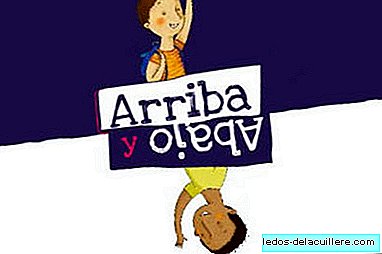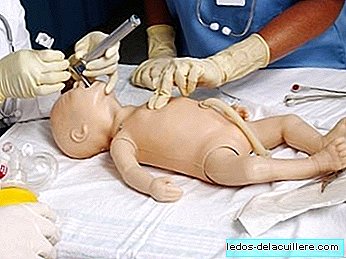
As many parents have already noticed, we are in an epidemic era of acute gastroenteritis (GEA) for the fearsome virus called rotavirus. This is, say, the heaviest bug for GEAS, as it causes longer and more persistent episodes of vomiting, diarrhea and fever
What should be done if the child starts with GEA? First, don't be scared. It is a very common and very contagious pathology. Often whole families are affected at the same time, since it is orally transmitted. And the second: Hydration.
As for food, the ideal is not to modify it at all, even if you have the idea that rice and ham are the best. Eye with juices and very sugary drinks like coke, which can make diarrhea worse.
GEAs themselves are not dangerous diseases, the only thing they can produce if they do not insist well on liquids, is dehydration and all that entails. The symptoms of dehydration, are those that mark that you have to go to the doctor, and are: dry mucous membranes (eyes, mouth ...) and skin, less amount of pee, increased thirst, sunken eyes, irritability and flashy prostration.
It has been shown that oral rehydration is the same or more effective than intravenous. That is why in the emergency department, parents are given a glass of oral serum (often with their surprise). Oral rehydration consists in contributing to the loss of fluid from vomiting and diarrhea. First, high doses of any hyposodic oral serum are given to rehydrate (between 50-100 ml per kilo of weight, depending on the degree of dehydration of the child). Then, serum should be given with each vomit or diarrhea to prevent reoccurrence. dehydrate.
The serum is given in small doses to prevent vomiting, 3-5 ml every 5 minutes, with a spoon or syringe. The approximate amount varies depending on the weight of the child, about 10 ml per kilo of weight. Intravenous rehydration should be left for cases of extreme dehydration.
If you look, if 5 ml (1 teaspoon) of oral serum is given every minute, they are administered: 300 ml / hour!












